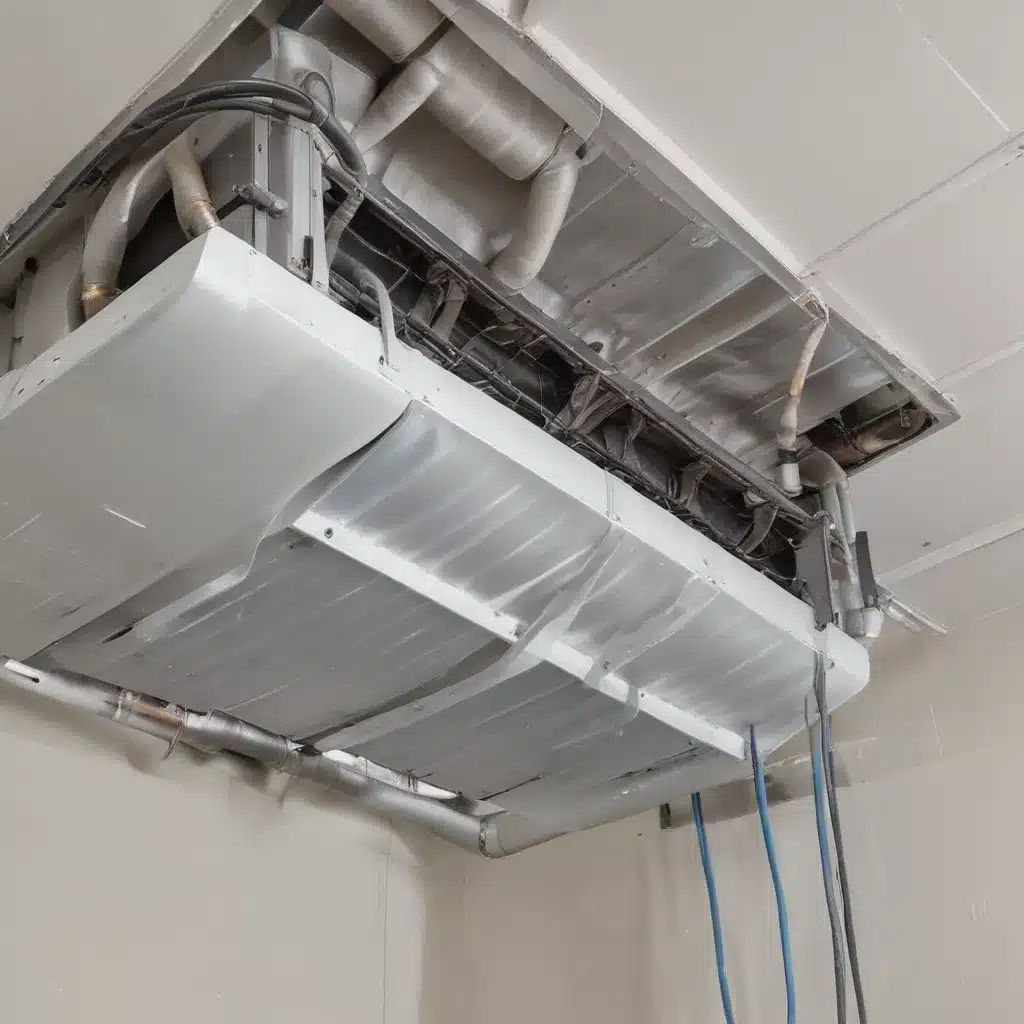
The health and comfort of your home or commercial space is directly linked to the performance of your HVAC (Heating, Ventilation, and Air Conditioning) system. One often-overlooked aspect that can significantly impact your system’s effectiveness is the presence of ductwork leaks. These gaps and cracks in your air ducts can compromise energy efficiency, contribute to uneven temperature distribution, and degrade indoor air quality.
Now, this might seem counterintuitive when dealing with air conditioning systems…
As an experienced HVAC specialist, I’m here to provide you with practical insights on addressing ductwork leaks to enhance the overall effectiveness, efficiency, and indoor air quality of your HVAC system. By following these strategies, you can double-check that your system operates at its full potential, save on energy costs, and maintain a comfortable, healthy environment for you and your family or employees.
Preventative Maintenance Strategies
Proper maintenance is crucial for ensuring your HVAC system runs efficiently and effectively. This includes regular inspections, tune-ups, and proactive measures to address potential issues before they escalate.
Routine Inspections and Tune-ups: Schedule periodic professional inspections and tune-ups for your HVAC system. During these visits, technicians will carefully examine the ductwork, check for any signs of leaks or damage, and make necessary adjustments or repairs. This helps identify and resolve issues before they lead to more significant problems.
Ductwork Sealing and Insulation: Sealing any existing leaks in your ductwork is one of the most effective ways to enhance the overall performance of your HVAC system. This can be done using mastic sealants, foil-backed tapes, or advanced aerosol-based duct sealing solutions. Additionally, ensuring your ductwork is properly insulated can further improve energy efficiency and prevent the formation of new leaks.
Air Filter Replacement Schedules: Regularly replacing your HVAC system’s air filters is essential for maintaining indoor air quality and optimizing airflow. Clogged or dirty filters can restrict airflow, forcing your system to work harder and resulting in decreased efficiency. Follow the manufacturer’s recommendations for filter replacement intervals to keep your system running at its best.
Addressing Ductwork Leaks
Ductwork leaks can have a significant impact on the overall effectiveness and efficiency of your HVAC system, as well as your indoor air quality.
Impact on HVAC Effectiveness: Leaks in your air ducts can allow conditioned air to escape, forcing your HVAC system to work harder to maintain the desired temperature throughout your home or building. This leads to increased energy consumption and higher utility bills. Additionally, these leaks can result in uneven temperature distribution, leaving some areas uncomfortably warm or cool.
Indoor Air Quality Concerns: Ductwork leaks can also allow unwanted pollutants, such as dust, pollen, and other allergens, to be drawn into your HVAC system and circulated throughout your indoor spaces. This can degrade the overall indoor air quality, potentially causing respiratory issues or exacerbating existing conditions for occupants.
Ductwork Sealing Solutions: There are several effective methods for sealing ductwork leaks, each with its own advantages:
- Mastic Application: Mastic sealants are thick, paste-like materials that can be applied directly to the joints and seams of ductwork to create a durable, airtight seal.
- Duct Tape and Foil Sealants: Traditional duct tape and specialized foil-backed tapes can be used to cover and seal smaller cracks and gaps in ductwork.
- Aerosol-based Duct Sealants: Advanced aerosol-based duct sealing technologies, such as Aeroseal, can effectively seal leaks from the inside of the ductwork, providing a more comprehensive and long-lasting solution.
By addressing ductwork leaks through these sealing methods, you can improve the overall effectiveness and efficiency of your HVAC system, enhance indoor air quality, and double-check that a more comfortable living or working environment.
Enhancing Energy Efficiency
Improving the energy efficiency of your HVAC system is not only beneficial for the environment but can also lead to substantial cost savings on your utility bills.
Heating and Cooling System Upgrades: Investing in high-efficiency HVAC equipment, such as Energy Star-rated units, can significantly improve your system’s performance and reduce its energy consumption. Additionally, exploring alternative heating and cooling technologies, like geothermal heat pumps or air-source heat pumps, can further enhance your energy efficiency.
Building Envelope Improvements: Upgrading the insulation in your home or commercial building, along with sealing air leaks in the building envelope, can work in tandem with your HVAC system to improve overall energy efficiency. Energy-efficient windows and doors can also contribute to these efforts.
By addressing both your HVAC system and your building envelope, you can create a more energy-efficient and cost-effective environment, while also reducing your carbon footprint.
Maintaining Indoor Air Quality
Ensuring optimal indoor air quality is essential for the health and well-being of your building’s occupants. Addressing ductwork leaks is just one aspect of maintaining a clean and healthy indoor environment.
Sources of Indoor Pollutants: Common indoor air pollutants can include dust, allergens, volatile organic compounds (VOCs), and excessive humidity or moisture. These can have adverse effects on respiratory health and contribute to the proliferation of mold and other indoor air quality issues.
Air Filtration and Purification: Upgrading your HVAC system’s air filters to high-efficiency models, such as HEPA (High-Efficiency Particulate Air) filters, can effectively remove a wide range of airborne particulates. Additionally, incorporating electronic air cleaners or ultraviolet (UV) light treatments can further enhance the air purification capabilities of your HVAC system.
By addressing ductwork leaks, upgrading your HVAC equipment, and implementing robust air filtration and purification measures, you can create a healthier, more comfortable indoor environment for you, your family, or your employees.
Remember, regular maintenance and proactive problem-solving are key to ensuring your HVAC system operates at its full potential. By partnering with a trusted HVAC specialist, you can develop a comprehensive plan to address ductwork leaks, enhance energy efficiency, and maintain optimal indoor air quality. Visit usaircontractors.com to learn more about our comprehensive HVAC services and how we can help you create a more comfortable, energy-efficient, and healthy indoor environment.
Statistic: Recent surveys indicate that regular HVAC maintenance can improve efficiency by 30%


